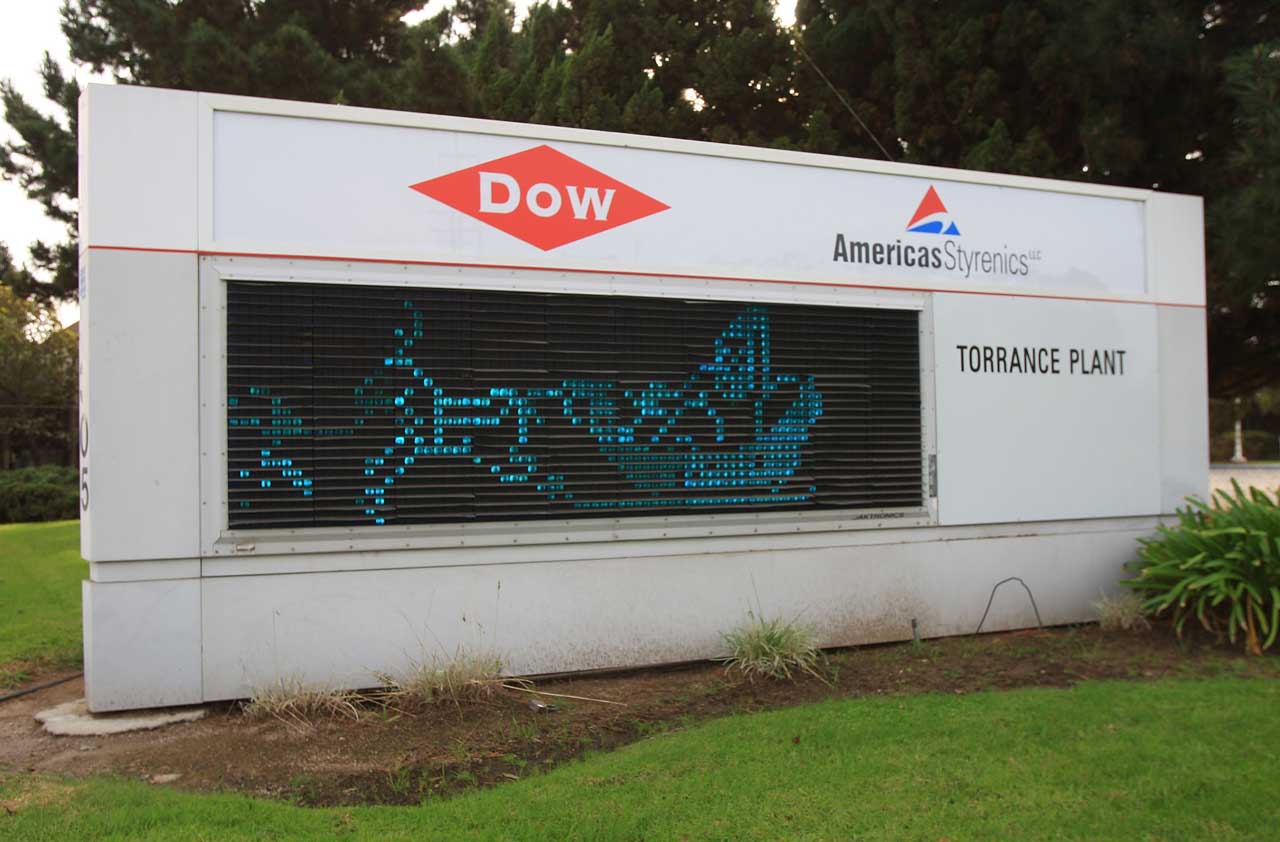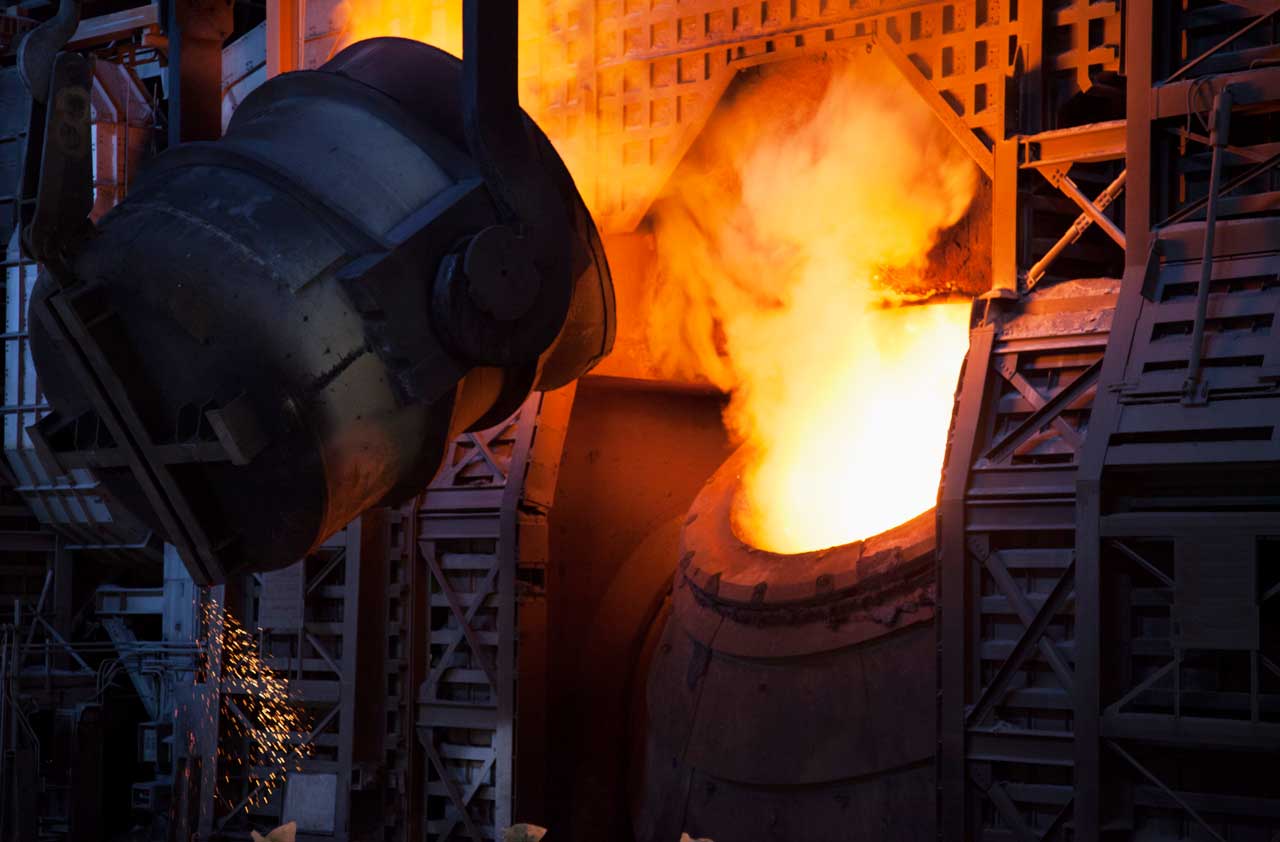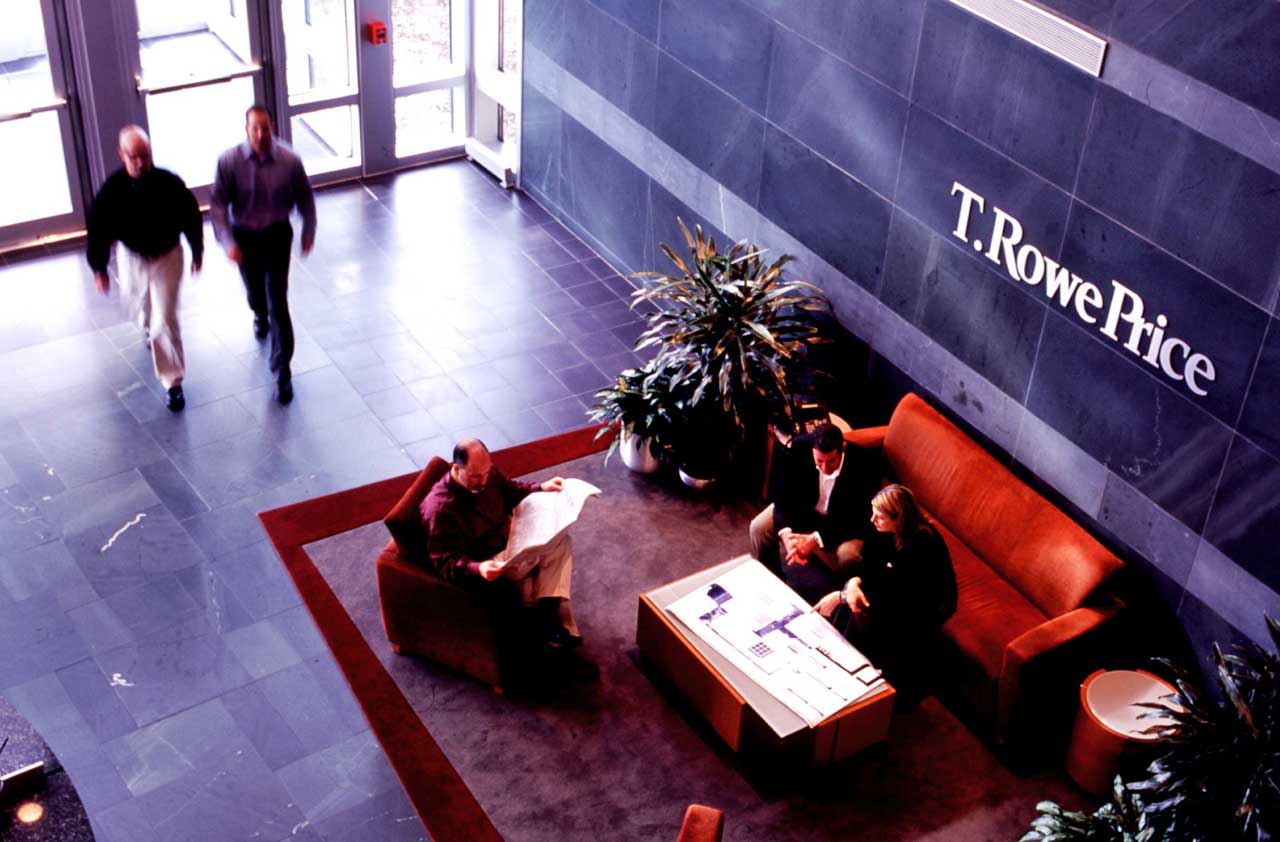8 Great Stocks to Own for Retirement
Many Americans in their fifties and sixties can expect to live well into their eighties.


Profit and prosper with the best of Kiplinger's advice on investing, taxes, retirement, personal finance and much more. Delivered daily. Enter your email in the box and click Sign Me Up.
You are now subscribed
Your newsletter sign-up was successful
Want to add more newsletters?

Delivered daily
Kiplinger Today
Profit and prosper with the best of Kiplinger's advice on investing, taxes, retirement, personal finance and much more delivered daily. Smart money moves start here.

Sent five days a week
Kiplinger A Step Ahead
Get practical help to make better financial decisions in your everyday life, from spending to savings on top deals.

Delivered daily
Kiplinger Closing Bell
Get today's biggest financial and investing headlines delivered to your inbox every day the U.S. stock market is open.

Sent twice a week
Kiplinger Adviser Intel
Financial pros across the country share best practices and fresh tactics to preserve and grow your wealth.

Delivered weekly
Kiplinger Tax Tips
Trim your federal and state tax bills with practical tax-planning and tax-cutting strategies.

Sent twice a week
Kiplinger Retirement Tips
Your twice-a-week guide to planning and enjoying a financially secure and richly rewarding retirement

Sent bimonthly.
Kiplinger Adviser Angle
Insights for advisers, wealth managers and other financial professionals.

Sent twice a week
Kiplinger Investing Weekly
Your twice-a-week roundup of promising stocks, funds, companies and industries you should consider, ones you should avoid, and why.

Sent weekly for six weeks
Kiplinger Invest for Retirement
Your step-by-step six-part series on how to invest for retirement, from devising a successful strategy to exactly which investments to choose.
Many Americans in their fifties and sixties can expect to live well into their eighties. If you happen to be one of them, it’s a good idea to find stocks that can form the bedrock of your portfolio. Large companies with steady revenues, profits and favorable growth prospects are good candidates. Although their stocks may not sizzle, they tend to generate solid gains over time, without all the drama of the market’s highfliers.
We found eight stocks that should be right at home in a baby boomer’s portfolio, creating a sturdy foundation of growth for years to come.
Stocks are listed in alphabetical order; share prices and related data are as of July 23; price-earnings ratios are based on estimated earnings for the next four quarters. Earnings growth figures are based on analysts’ estimates and come from Thomson Reuters.

Allergan PLC
- Share price: $314.95Market value: $124 billion5-year annualized return: 49.9%Projected earnings growth: 2015, 28%; 2016, 20%Price-earnings ratio: 16Dividend yield: 0
One thing that never gets old is the desire to stay young. No drug company understands this better than Allergan (AGN), one of the few Big Pharma companies growing at a healthy clip. The maker of Botox and other treatments for “aesthetic conditions,” Allergan has found scores of new uses for Botox, including treatments for migraine headaches and muscle spasms.
Allergan’s finances appear to be getting healthier, too. On July 27, the company, which merged with Actavis earlier this year and is headquartered in Dublin, Ireland, announced plans to sell its generic-drug business to Israel-based Teva Pharmaceutical Industries (TEVA) for $40.5 billion, including $33.8 billion in cash. Allergan CEO Brent Saunders says the deal should leave Allergan with practically no net debt and it should sharpen the firm’s focus on brand-name drugs, which carry higher profit margins than generics. Indeed, Morgan Stanley analysts suggest that investors may be willing to pay a higher P/E for the stock because Allergan is shedding its generics business. For now, analysts expect Allergan’s profits to rise a healthy 20% next year, well above the 12% forecast for Standard & Poor’s 500-stock index. Allergan shares were up 8% at mid-day on July 27.

Dow Chemical
- Share price: $47.76Market value: $55 billion5-year annualized return: 14.9%Projected earnings growth: 2015, 2%; 2016, 15%Price-earnings ratio: 14Dividend yield: 3.4%With factories in 35 countries and more than 6,000 products, Dow (DOW) towers over the global chemical industry.
Analysts expect revenue to slump 12% this year, to $51 billion, because of sluggish sales in Europe and China. But Dow is taking steps to boost sales and profits. The firm is selling commodity product lines and upgrading its portfolio with more profitable specialty chemicals. To lower production costs, it’s investing in factories that produce raw materials. And Dow is building a petrochemical complex in Saudi Arabia, in a joint venture with Saudi Aramco, that will be one of the world’s largest when completed next year. Dow is generating ample amounts of cash to buy back shares and raise its dividend, which it recently hiked by 14%.

General Electric
- Share price: $26.26Market value: $265 billion5-year annualized return: 13.8%Projected earnings growth: 2015, -21%; 2016, 18%Price-earnings ratio: 19Dividend yield: 3.5%General Electric (GE) is returning to its roots as an industrial powerhouse.
The firm sold its media division, NBC Universal, in 2013, and its finance unit, GE Capital, is now on the auction block. GE plans to keep some of the finance business in-house, but it aims to reap $50 billion from the sale and to return most of the cash to shareholders through buybacks of its stock. The company is also bolstering its industrial product line with a $14 billion bid to buy most of Alstom’s energy business, subject to regulatory approval in Europe. If the deal goes through, GE estimates, it will boost industrial revenues to $150 billion by 2019, up from $108 billion in 2014. With the P/E close to next year’s estimated earnings growth, GE looks reasonably priced. Overall, analysts forecast earnings growth of 18% in 2016, and the stock’s P/E ratio is slightly above that of the S&P 500, which sells for 17 times estimated earnings.

Gilead Sciences
- Share price: $117.66Market value: $173 billion5-year annualized return: 47.9%Projected earnings growth: 2015, 34%; 2016, 3%Price-earnings ratio: 11Dividend yield: 1.5%At 11 times forward earnings, Gilead (GILD) is one of the cheapest biotech stocks you can buy.
The reason it’s so cheap is that Gilead’s hepatitis C drugs, which accounted for about half of its $24.9 billion in 2014 sales, face stiff competition from rival drugs. Insurers are also balking at the cost of Gilead’s hepatitis drugs, which run more than $1,000 a day for some patients. Yet analysts expect sales of the drugs to stabilize and eventually pick up as more patients gain access to health insurance and sales grow overseas.
Gilead also sells some of the leading drugs for treating HIV/AIDS. Its pipeline of potential new products include drugs for HIV/AIDS, cancer and liver diseases. Wall Street expects Gilead to earn $10.85 per share this year and $11.13 in 2016. Although that’s a surprisingly dull forecast for this highflier and is a big reason for its low P/E ratio, Gilead recently initiated a dividend and announced a $15 billion share buyback program, which should help boost profits per share. Long-term, Gilead should be a “fantastic growth stock,” says Lowell Miller, chief investment officer of Miller/Howard Investments, in Woodstock, N.Y.

Microsoft
- Share price: $46.11Market value: $370 billion5-year annualized return: 14.4%Projected earnings growth: For the fiscal year ending June 2016, 10%; for the fiscal year ending June 2017, 14%Price-earnings ratio: 17Dividend yield: 2.7%For many years, Microsoft (MSFT) was like a cruise ship adrift at sea. Protected by profits from the double-hull of Windows and Office software, the firm missed tech waves such as the smartphone and tablet computing, and its stock meandered for years in the $20s.
Lately, though, the ship has turned in the right direction with a new software licensing model, competitive cloud computing services and an energetic new CEO, Satya Nadella, who seems determined to remake Microsoft into a leaner and—dare we say it—innovative tech company. Nadella wants to push Microsoft more into cloud computing and mobile products, and the company is launching a new version of its Windows operating system that it hopes will catch on for mobile devices, as well as for personal computers.
Microsoft posted a net loss of $3.2 billion (40 cents a share) in its fiscal fourth quarter, which ended June 30, mainly because of an $7.5 billion write-down related to its acquisition of Nokia’s mobile phone business. But analysts expect earnings to climb 10% in the current fiscal year, which ends next June 30. The stock, which has risen by two-thirds since early 2013, is no longer in the bargain bin, but with a P/E ratio about the same as the S&P 500, neither is it overpriced.

Precision Castparts
- Share price: $192.47Market value: $27 billion5-year annualized return: 10.1%Projected earnings growth: For the fiscal year ending March 2016, 1%; for the fiscal year ending March 2017, 12%.Price-earnings ratio: 15Dividend yield: 0.06%(EDITOR'S NOTE: On Aug. 10, 2015, Berkshire Hathaway (BRK.B) agreed to acquire Precision Castparts for $235 per share. We recommended the stock to readers on July 27, 2015, when shares were trading near $192.)
Growth stocks don’t get cheap very often, but Precision Castparts (PCP) is now on sale. The company makes highly engineered components for aerospace companies, such as Boeing (BA), and other industrial firms.
Sales growth has slumped in recent years, partly because of a slowdown in the energy sector, and analysts have cut earnings estimates for the fiscal year that ends next March. Yet the company sees growth rebounding in the next few years with a new generation of aircraft orders. CEO Mark Donegan aims to spend $4 billion to $6 billion on acquisitions to help boost sales and profits by 2017, and Precision is returning more cash to investors via share buybacks. Also compelling: The shares trade at 18 times trailing earnings, a more than 10% discount to their average P/E ratio over the past five years. Some big-name investors have been buying. Warren Buffett boosted his stake in Precision late last year, and the well-regarded Oakmark Fund (OAKMX) bought shares this year.

T. Rowe Price
- Share price: $77.28Market value: $20 billion5-year annualized return: 12.9%Projected earnings growth: 2015, 6%; 2016, 9%Price-earnings ratio: 15Dividend yield: 2.6%More than 70% of T. Rowe’s funds beat their benchmarks over the past five years.
That’s an enviable record for any money-management company, but the better deal may be the company’s stock. While other active managers lose business to low-cost index funds, T. Rowe (TROW) is gaining assets under management. The firm now manages more than $770 billion and should reach $800 billion to $825 billion this year, estimates Morningstar analyst Gregory Warren. Moreover, about two-thirds of the money that T. Rowe manages is held in retirement and variable annuity accounts. Most people put these accounts on autopilot, rarely switching funds, and as a result T. Rowe has a “far stickier” set of assets than other fund managers, says Warren. The business is immensely profitable, with profit margins from operations at about 47%. T. Rowe also generates more than $1 billion a year in free cash flow (cash profits that remain after the capital expenditures needed to maintain the business), most of which it returns to investors via share buybacks and dividends.

Thermo Fisher Scientific
- Share price: $140.60Market value: $56 billion5-year annualized return: 23%Projected earnings growth: 2015, 6%; 2016, 12%Price-earnings ratio: 18Dividend yield: 0.4%With sales last year of nearly $17 billion, Thermo (TMO) is one of the biggest suppliers to science labs, which spend more than $100 billion per year on diagnostic tools, instruments and other products.
The market is expanding just 3% to 5% a year, but Thermo boosted revenue at a 13% annual pace from 2010 to 2014. The company bought a big competitor, Life Technologies, last year, and Thermo expects earnings to climb 8% to 12% through 2018, on average, without more acquisitions. Demand for genetic-science tools, a $1.7 billion per year business, is helping fuel growth, says Andrew Keefer, a senior vice president at Bryn Mawr Trust, a money manager in Hershey, Pa. The stock’s P/E ratio is well above its earnings growth rate—a sign that the shares aren’t cheap—but Thermo is “in the right sector with great long-term growth prospects,” says Keefer, “and the company is very disciplined at what it does.”
Profit and prosper with the best of Kiplinger's advice on investing, taxes, retirement, personal finance and much more. Delivered daily. Enter your email in the box and click Sign Me Up.

-
 Here’s How to Stream the Super Bowl for Less
Here’s How to Stream the Super Bowl for LessWe'll show you the least expensive ways to stream football's biggest event.
-
 The Cost of Leaving Your Money in a Low-Rate Account
The Cost of Leaving Your Money in a Low-Rate AccountWhy parking your cash in low-yield accounts could be costing you, and smarter alternatives that preserve liquidity while boosting returns.
-
 I want to sell our beach house to retire now, but my wife wants to keep it.
I want to sell our beach house to retire now, but my wife wants to keep it.I want to sell the $610K vacation home and retire now, but my wife envisions a beach retirement in 8 years. We asked financial advisers to weigh in.
-
 States That Tax Social Security Benefits in 2026
States That Tax Social Security Benefits in 2026Retirement Tax Not all retirees who live in states that tax Social Security benefits have to pay state income taxes. Will your benefits be taxed?
-
 What to Do With Your Tax Refund: 6 Ways to Bring Growth
What to Do With Your Tax Refund: 6 Ways to Bring GrowthUse your 2024 tax refund to boost short-term or long-term financial goals by putting it in one of these six places.
-
 What Does Medicare Not Cover? Eight Things You Should Know
What Does Medicare Not Cover? Eight Things You Should KnowMedicare Part A and Part B leave gaps in your healthcare coverage. But Medicare Advantage has problems, too.
-
 12 Great Places to Retire in the Midwest
12 Great Places to Retire in the MidwestPlaces to live Here are our retirement picks in the 12 midwestern states.
-
 15 Cheapest Small Towns to Live In
15 Cheapest Small Towns to Live InThe cheapest small towns might not be for everyone, but their charms can make them the best places to live for plenty of folks.
-
 15 Reasons You'll Regret an RV in Retirement
15 Reasons You'll Regret an RV in RetirementMaking Your Money Last Here's why you might regret an RV in retirement. RV-savvy retirees talk about the downsides of spending retirement in a motorhome, travel trailer, fifth wheel, or other recreational vehicle.
-
 The 24 Cheapest Places To Retire in the US
The 24 Cheapest Places To Retire in the USWhen you're trying to balance a fixed income with an enjoyable retirement, the cost of living is a crucial factor to consider. Is your city the best?
-
 The Six Best Places to Retire in New England
The Six Best Places to Retire in New Englandplaces to live Thinking about a move to New England for retirement? Here are the best places to land for quality of life, affordability and other criteria.
